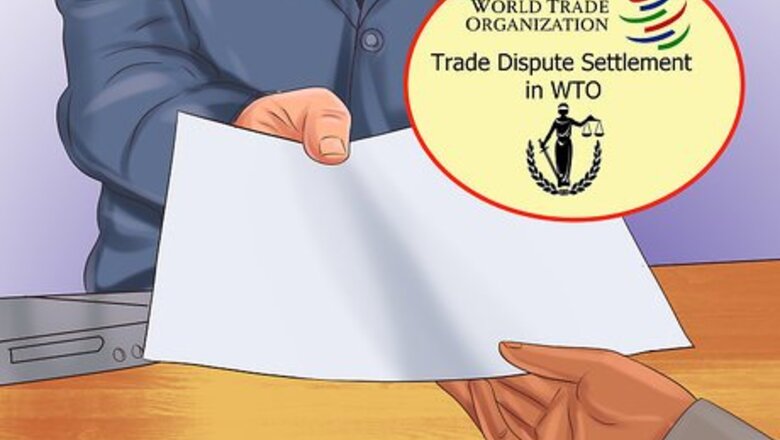
views
X
Research source
[2]
X
Research source
Requesting Consultation
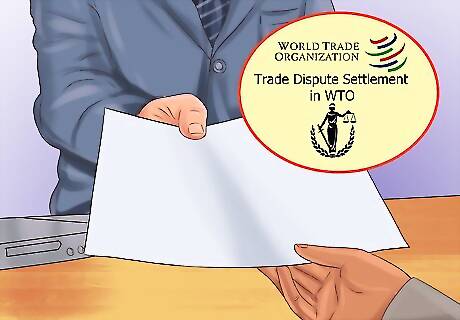
Submit a request to the other country. If one country has a trading dispute with another country, the WTO dispute settlement agreement requires that country to first request consultation with that country to attempt to resolve the dispute through private negotiation. Requests for consultation must be made in writing and delivered in such a way that the date of receipt can be confirmed. The request lays out the reasons for the dispute and lists the international trading agreement the country alleges the other country is violating and the legal basis for the complaint. The country that submits the request must also provide notice to the WTO that consultation has been requested.
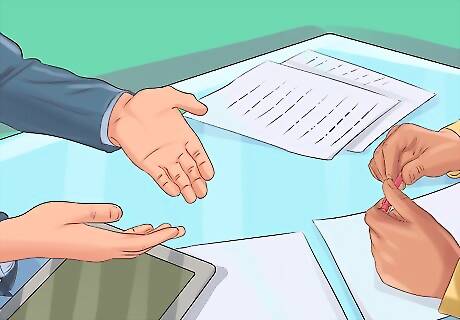
Negotiate to resolve the dispute. When a country receives a consultation request, it must reply to that request within 10 days and enter negotiations to resolve the dispute within 30 days of receipt of the request. In some cases of urgency, such as disputes involving perishable goods, this timeline is shortened and the countries only have 10 days from the receipt of the request to enter negotiations. Negotiations must be made in good faith, with an eye toward resolving the dispute. If the other country does not respond within 10 days or refuses to enter negotiations, the country that requested consultation may ask the WTO to appoint a panel to resolve the matter. Consultation negotiations are confidential, and anything said during these negotiations cannot be used against either country in any other proceeding. Other countries that have a substantial interest in the outcome of the dispute also may participate in the negotiations after notice to the disputing countries.

Ask the WTO director-general for assistance. If the countries are unable to resolve the dispute themselves, at any time either country may request assistance or mediation from the WTO director-general. The director-general will provide resources or assistance as necessary to attempt to resolve the dispute without needing to appoint a panel. Either party may request "good offices," which is advice from the director-general or other country regarding how to resolve the dispute. The country or official providing this advice does not take part in the dispute itself, or have any interest in the outcome of the dispute.

Attempt mediation. At either country's request, the WTO director-general will arrange to mediate the dispute between the two countries in an attempt to reach a mutually agreeable resolution without the need to appoint an arbitration panel. Once the WTO has been notified that the countries are negotiating, they have 60 days to resolve their dispute. In cases of urgency, this timeline is constricted and the countries have only 20 days to find a resolution. If either country requests mediation or conciliation from the WTO, the same 60-day deadline applies unless both parties waive it. As with negotiations, anything said during mediation or conciliation sessions is confidential.
Establishing a Panel

Ask the WTO to appoint a panel. If the two countries are unable to resolve the trading dispute among themselves within 60 days, either country may request a panel of experts be appointed by the WTO's Dispute Settlement Body. A panel can be requested before the 60 days are up if both countries mutually agree that they cannot resolve the dispute through negotiations and have reached an impasse. The WTO operates by consensus, which means that actions will happen unless all members agree the action should not happen. When a country requests a panel be appointed, the panel will be appointed unless a consensus of all members believes a panel should not be appointed. Panels are chosen after consultation with the countries in dispute, and consist of three experts from different countries who will examine the evidence and arguments and determine who is right and who is wrong. Disputing countries can have a panel of five experts at their request, but this request must be made within 20 days of the date of the establishment of the panel.
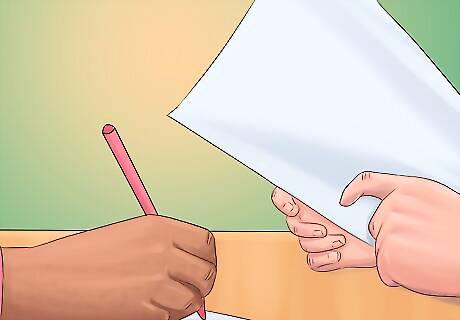
Submit written arguments. Prior to the panel's first hearing, both countries submit written documents that outline their cases and positions regarding the trading dispute, along with any supporting materials or written statements from experts. Once the panel is appointed, the panelists will meet with representatives from both countries to establish a timeline for the proceedings and a deadline for the submission of written arguments. The entire process cannot take more than six months, so the panel will set deadlines with this in mind. As with the consultation phase, this deadline is constricted to three months in cases of urgency. Written arguments are submitted to the Secretariat of the WTO. The Secretariat then distributes these documents to the panel and to the other disputing country. The countries generally must submit their written arguments simultaneously. If they are not submitted simultaneously, the Secretariat will hold them and distribute them simultaneously.

Attend the first hearing. The first hearing is conducted much like a tribunal or court proceeding, with the panel hearing from both countries involved in the dispute as well as any other countries or entities who have an expressed interest in the dispute. At the hearing, each disputing country makes oral arguments. Third party countries who have an interest in the outcome of the dispute also may present statements. If the panel wants to consult with experts or needs additional information, it will let the representatives of the disputing countries know. A country that receives a request for additional information or expert opinion must respond promptly.

Submit rebuttals. After the conclusion of the first hearing, the two disputing countries along with any others who have expressed an interest in the dispute can submit written documents rebutting opposing arguments made at the hearing. The countries are allowed to consult with experts or to submit additional expert reports in their rebuttal documents. The panel will set a deadline for receipt of rebuttals, which should be submitted simultaneously by the countries and will be distributed simultaneously using the same procedure as was used for the initial written argument papers.

Receive drafts of the panel's report. The panel initially circulates its draft of the descriptive sections of its report, in which it summarizes the facts of the dispute and each country's argument. Country objections in this initial draft should be limited to situations in which they believe the panel is in error as to specific facts or the description of that country's argument. If a country believes there are errors in the descriptive sections, it may send a request to the panel to review that section. The panel may hold another hearing on any issues raised by the disputing countries regarding the descriptive sections of the report.

Review the panel's report. The countries are given two weeks to review the panel's descriptive sections, and one week to review the interim report with the panel's findings and conclusions. Deliberations of the panel are confidential, and opinions expressed in the panel report by individual panelists are anonymous. During the review period, each disputing country as well as third-party countries may submit comments regarding the interim report. If no comments are received during the review period, the interim report becomes the final report of the panel.
Appealing a Panel Decision
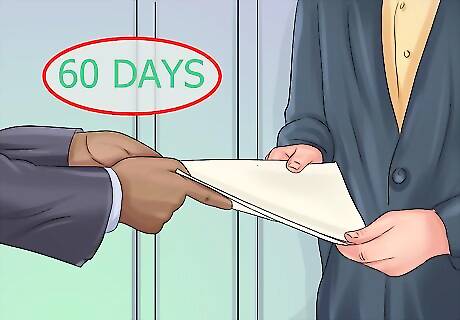
Receive the panel's final report. Once the panel issues its final report, countries have three weeks to review it before it is circulated to all WTO members for evaluation. Within 60 days, the Dispute Settlement Body adopts the report as its ruling or recommendation unless it is rejected by a consensus of the members. The Body does not consider the final report for adoption until 20 days after it has been issued by the panel. This provides time for the final report to be circulated and reviewed by all members. If any WTO member country has an objection to the final report, it must be submitted at least 10 days before the date for the final report to be considered by the Dispute Settlement Body for adoption.

Submit a request for appeal. Both countries involved in the international trading dispute have the right to appeal the findings and conclusions of the panel's report by requesting an appeal with the Appellate Body of the Dispute Settlement Body. A request for appeal technically can be made before the final report is adopted as a resolution by the Dispute Settlement Body. Appeals requests relate to legal issues only – the Appellate Body does not reconsider the facts in the case. Only a disputing country may file an appeal, not any of the other countries that expressed an interest in the outcome of the case, even if they submitted arguments to the panel. The Appellate Body is made up of seven members with recognized standing in international trade law who are not affiliated with any particular government. The Appellate Body is a permanent group established by the Dispute Settlement Body. Each person appointed to the Appellate Body serves a four-year term, and may be reappointed once. For any given appeal, three of the seven members serve. The three members chosen cannot be from one of the disputing countries or any other country that has an interest in the case.

Attend the appeals hearing. The Appellate Body hears arguments from both sides based on points of international trade law, and makes a decision that upholds, modifies, or reverse the panel's legal findings and conclusions. At the appeals hearing, each disputing country makes oral arguments regarding the legal issue raised in the appeal. Generally, the entire appeals proceeding cannot last longer than 60 days from the date the appeal was requested.

Receive the appeals report. After the Appellate Body issues its report, the Dispute Settlement Body has 30 days to either accept or reject it. If accepted, it becomes the final ruling of the Dispute Settlement Body, which has the authority to enforce it. After the appeal is accepted, member countries are expected to immediately comply with the decision. The WTO will monitor and confirm compliance, or enter sanctions against countries that fail to comply with the final ruling. After 20 days, if a country has not complied, the other country can ask the Dispute Settlement Body for permission to retaliate. This means the harmed country can suspend any trade concessions or obligations to that country until it complies with the order.

















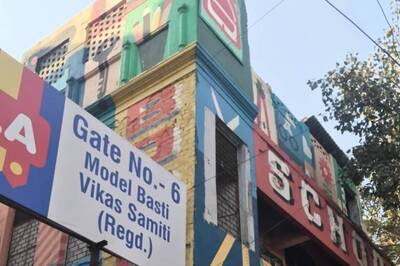


Comments
0 comment